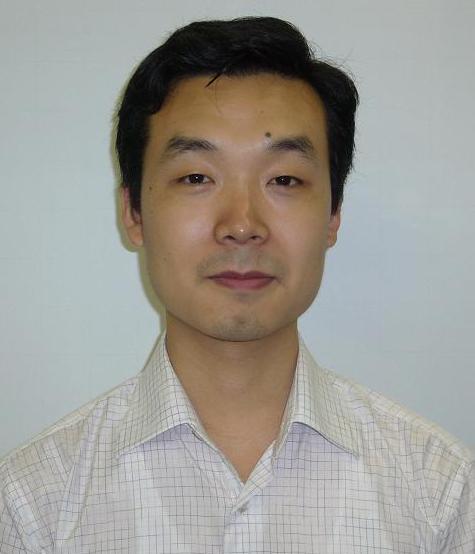

Workshop on Latest developments of FG technologies in China
Motivation
In recent years, there are many researchers in China working on the field of FG, and many competitive companies focus on developing FG technologies. So, we want to propose a half-day workshop in FG2018 to discuss the latest developments of FG technologies in China. Besides of the researchers from academia, some outstanding researchers from industry will also report their progress in research and applications. The workshop will help to exchange ideas between academia and industry. In the proposed half-day workshop, we have invited some talks and host a panel discussion. The talks are from academic and industry and will share the latest developments of FG technologies in China with all the FG2018 attendees.
Time
13:30-18:00, Tuesday, May 15, 2018.Venue
Room 2, Grand New World Hotel(西安古都新世界大酒店), Xi'an, China.Progamme
| 13:30 - 13:40 | Opening |
| 13:40 – 14:20 | Invited talk 1 |
| Face Recognition: Empower the Future Prof. Stan Z. Li, Institute of Automation, Chinese Academy of Sciences |
|
| 14:20 – 15:00 | Invited talk 2 |
| Face recognition in deep learning era: recent progress and applications in China Prof. Shiguang Shan, Institute of Computing Technology, Chinese Academy of Sciences |
|
| 15:00 – 15:20 | Coffee break |
| 15:20 – 16:00 | Invited talk 3 |
| Deep Learning Methods for Understanding Human Gestures and Actions Prof. Yu Qiao, Shenzhen Institutes of Advanced Technology, Chinese Academy of Sciences |
|
| 16:00 - 16:40 | Invited talk 4 |
| Person re-identification: Recent Challenges and Development Prof. Weishi Zheng, Sun Yat-sen University |
|
| 16:40 - 17:20 | Invited talk 5 |
| Biometrics for Intelligent Finance Dr. Jing Xiao, Ping An Technology |
|
| 17:20 - 18:00 | Invited talk 6 |
| Face Paring and Editing Prof. Si Liu, Institute of Information Engineering, Chinese Academy of Sciences |
Organizing Committee
- Prof. Qingshan Liu,
Nanjing University of Information Science and Technology, qsliu@nuist.edu.cn - Prof. Shiqi Yu,
Shenzhen University, shiqi.yu@szu.edu.cn - Prof. Zhen Lei,
Institute of Automation, Chinese Academy of Science, zlei@nlpr.ia.ac.cn
Titles, Abstracts and Biographies

Prof. Stan Z. Li
Title: Face Recognition: Empower the Future
Abstract:
Biography: Stan Z. Li, IEEE Fellow, received his B.Eng from Hunan University, China, M.Eng from National University of Defense Technology, China, and PhD degree from Surrey University, UK. He is currently a professor at the National Laboratory of Pattern Recognition and the director of the Center for Biometrics and Security Research (CBSR), Institute of Automation (CASIA), and the director of the Center for Visual Internet of Things Research (VIOT), Chinese Academy of Sciences. He worked at Microsoft Research Asia as a researcher from 2000 to 2004. Prior to that, he was an associate professor at Nanyang Technological University, Singapore. He was elevated to for his contributions to the fields of face recognition, pattern recognition and computer vision.

Prof. Shiguang Shan
Title: Face recognition in deep learning era: recent progress and applications in China
Abstract: Thanks to the boom of deep learning, in the past 5 years, face recognition has undergone a big jump in terms of both technologies and applications. In this talk, I will firstly introduce the basic knowledge of Deep Convolutional Neural Network (DCNN), followed by its influence on all the component technologies of face recognition, including face detection, facial landmarks locating, face verification, and face identification. Then, I will take some efforts to introduce the blooming applications of face recognition in China, such as large-scale cross-matching of ID face photos for duplicate ID removal, face verification matching the inside-ID-card photo and the face of the card holder; and face verification matching an ID photo contaminated by rippling-curve and the face of the card holder. Finally, challenges of the field and some promising future research topics will be discussed.
Biography: Shiguang Shan received Ph.D. degree in computer science from the Institute of Computing Technology (ICT), Chinese Academy of Sciences (CAS), Beijing, China, in 2004. He has been a full Professor of this institute since 2010 and now the deputy director of CAS Key Lab of Intelligent Information Processing. His research interests cover computer vision, pattern recognition, and machine learning. He has published more than 200 papers, with totally more than 12,000 citations (Google scholar). He served as Area Chairs for many international conferences including ICCV’11, ICPR’12, ACCV’12, FG’13, ICPR’14, ICASSP’14, ACCV’16, and FG’18. And he is Associate Editors of several journals including IEEE T-IP, Neurocomputing, CVIU, and PRL.

Prof. Yu Qiao
Title: Deep Learning Methods for Understanding Human Gestures and Actions
Abstract: Human gestures and action recognition is receiving extensive research interests in computer vision nowadays due to its wide applications in surveillance, human-computer interface, sports video analysis, and content based video retrieval. The challenges of gesture estimation and action understanding come from background clutter, viewpoint changes, and motion and appearance variations. This talk will summarize the recent progresses toward understanding human gestures and actions with deep learning methods. We will also analyze the current challenges and the future directions.
Biography: Yu Qiao is a professor with the Shenzhen Institutes of Advanced Technology (SIAT), the Chinese Academy of Science, and the deputy director of multimedia research lab. His research interests include computer vision, deep learning, and robots. He has published more than 150 papers in international journals and conferences, including IEEE T-PAMI, IJCV, IEEE T-IP, IEEE T-SP, CVPR, ICCV, AAAI, ECCV. He received Jiaxi Lv young research award from Chinese academy of sciences. He is a senior member of IEEE. He was the first runner-up at the ImageNet Large Scale Visual Recognition Challenge 2015 in scene recognition, and the winner at the ActivityNet Large Scale Activity Recognition Challenge 2016 in video classification. His group also achieved top places in wide international challenges such as ChaLearn, LSun, THUMOUS.

Prof. Weishi Zheng
Title: Person re-identification: Recent Challenges and Development
Abstract: With the help of person re-identification (re-id), we are able to match people across non-overlapping camera views at different locations and different time in a large distributed space over a prolonged period of time. Recently, significant improvement of person re-id has been seen on standard benchmark datasets (e.g. at least more than 93% @ rank-1 matching). However, person re-id is fundamentally challenging because of the large visual appearance changes caused by variations in view angle, gesture, lighting, background clutter, and occlusion. Still, many challenges are still open problems for re-id, including low-resolution re-id, cross-modality re-id (e.g. between Infrared and RGB images), re-id under occlusion, re-id with limited labelling data and etc. This talk will review recent development of re-id and particularly introduce the progress on those open problems.
Biography: Wei-Shi Zheng is now a Professor with Sun Yat-sen University. His recent research interests include person re-identification, action/activity recognition, and large-scale machine learning algorithms. He has ever joined Microsoft Research Asia Young Faculty Visiting Programme in 2015. He is an associate editor of Pattern Recognition. He is a recipient of the Excellent Young Scientists Fund of the National Natural Science Foundation of China, and a recipient of Royal Society-Newton Advanced Fellowship, United Kingdom.

Prof. Si Liu
Title: Face Paring and Editing
Abstract: Recently, deep learning has achieved great success in the face understanding. In this talk, I will present our latest work in face parsing, face aging and facial attribute prediction. (1) For face parsing, we develop a Deep Image Parsing Network with adaptive receptive fields. (2) We also design Contextual Generative Adversarial Nets for face aging which may benefit age-invariant face verification. (3) I will introduce our recent work of a semi-supervised Generative Adversarial?Network for automatic makeup. Finally, I will show several demos of the above-mentioned techniques.
Biography: Dr. Si Liu is an associate professor in Chinese Academy of Science. She received Bachelor degree from advanced class of Beijing Institute of Technology, and PHD degree from Institute of Automation, Chinese Academy of Sciences. She has been Research Assistant and Postdoc in National University of Singapore. Her research interest includes computer vision and multimedia analysis. She has published over 40 cutting-edge papers on the human-related analysis including the human parsing, face editing and image retrieval. She was the recipient of Best Paper of ACM MM 2013, Best demo award of ACM MM 2012. She was the Champion of Big Data & Computing Intelligence Contest 2016 and CVPR 2017 Look Into Person Challenge.

Dr. Jing Xiao
Title: Biometrics for Intelligent Finance
Abstract: Fingerprint recognition has been a popular identification technique for years. With the rapid development of AI techniques recently, the other biometrics techniques, such as face recognition or voice authentication, has started to play important roles in various applications. Risk management is the most critical factor of financial business, and security is one of the core areas. As a leading integrated finance firm, Ping An has been developing a series of biometrics technologies for a number of financial areas, including banking, insurance, investment, Internet finance, and so on. This talk will introduce the technologies we developed and how they are successfully applied for Ping An’s finance businesses.
Biography: Dr. Xiao Jing, China “Thousand Talents Program” Distinguished Expert, is the Chief Scientist of Ping An Insurance (Group) Company of China, LTD. He received his PhD degree from Carnegie Mellon University, and has published over 50 academic papers and 90 granted US patents. Before joining Ping An, he worked as Principal Applied Scientist Lead in Microsoft Corp. and Manager of Algorithm Group in Epson Research and Development, Inc. Dr. Xiao started R&D in artificial intelligence and related fields since 1995, covering a broad range of application areas. He is now leading research and development in AI-related technologies and their applications on finance and healthcare in Ping An Group.